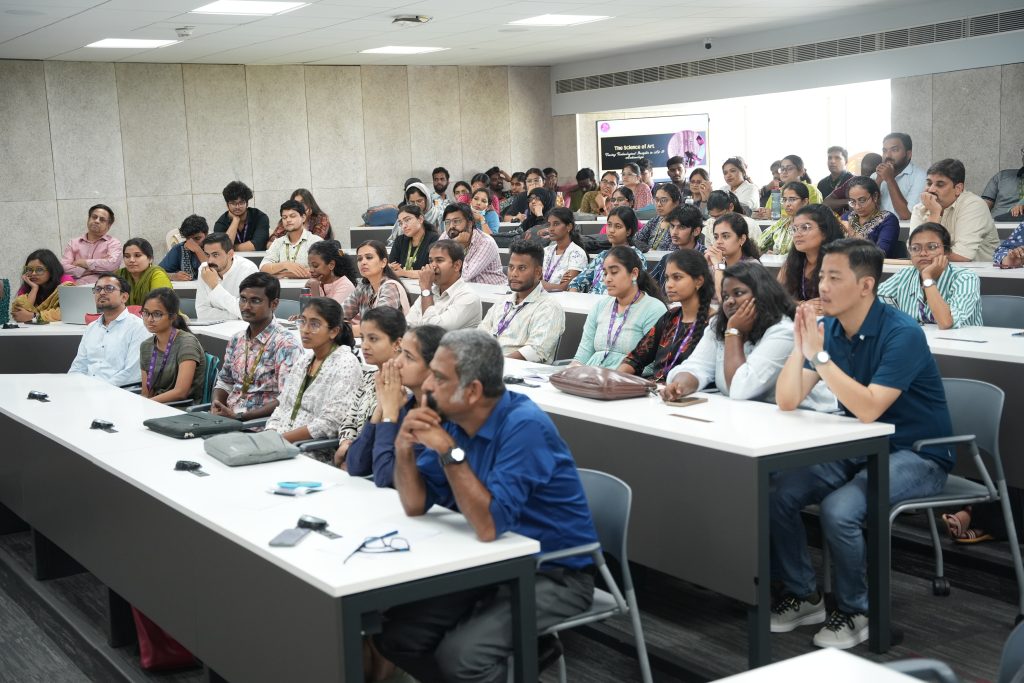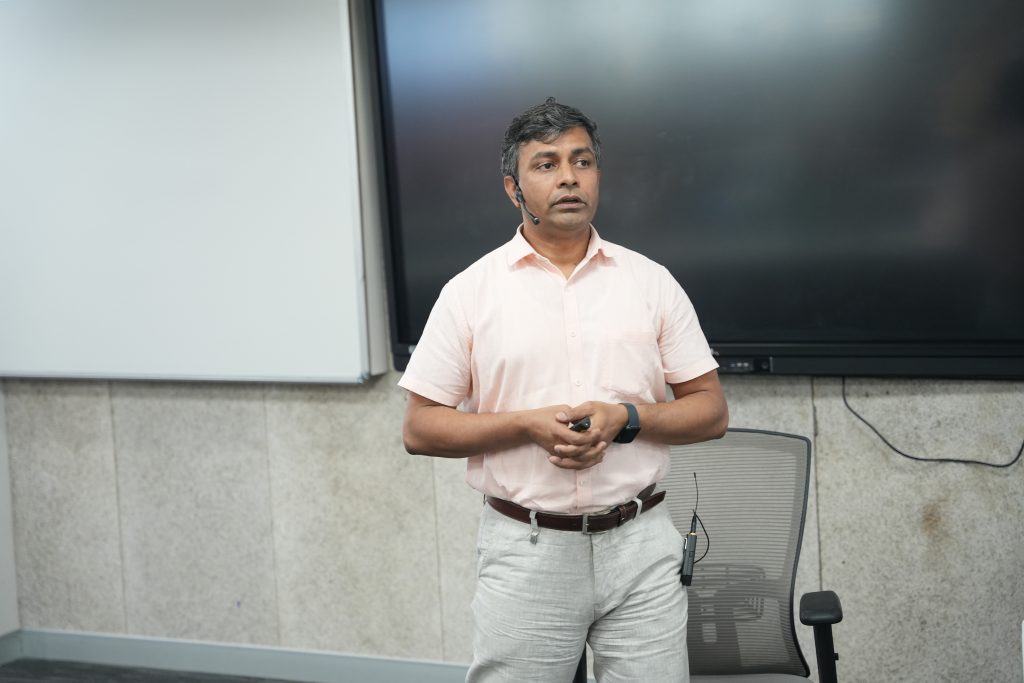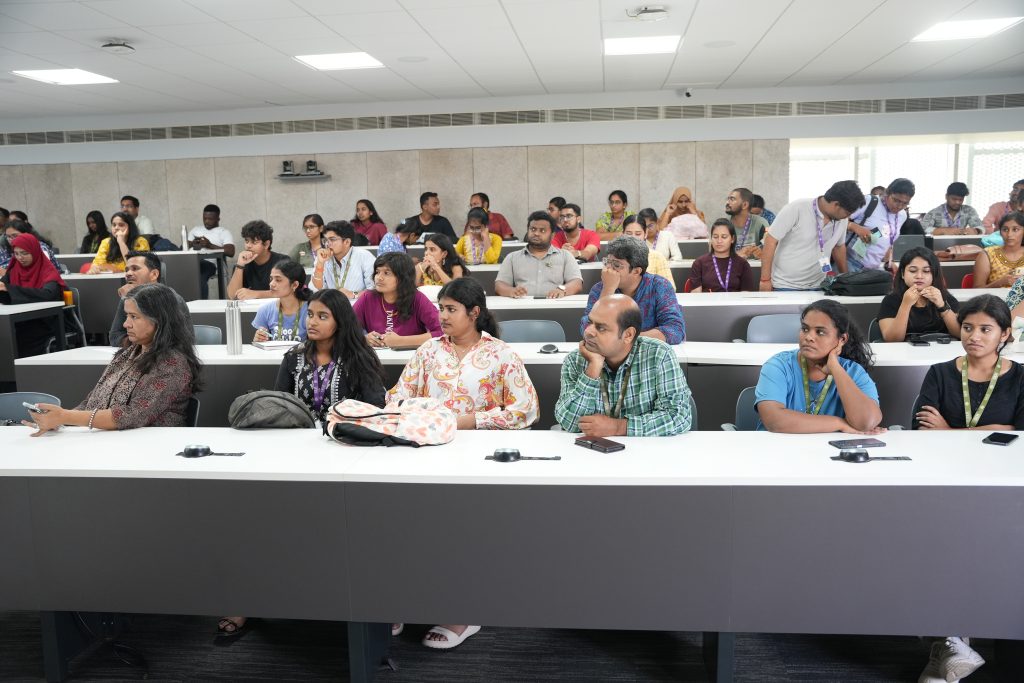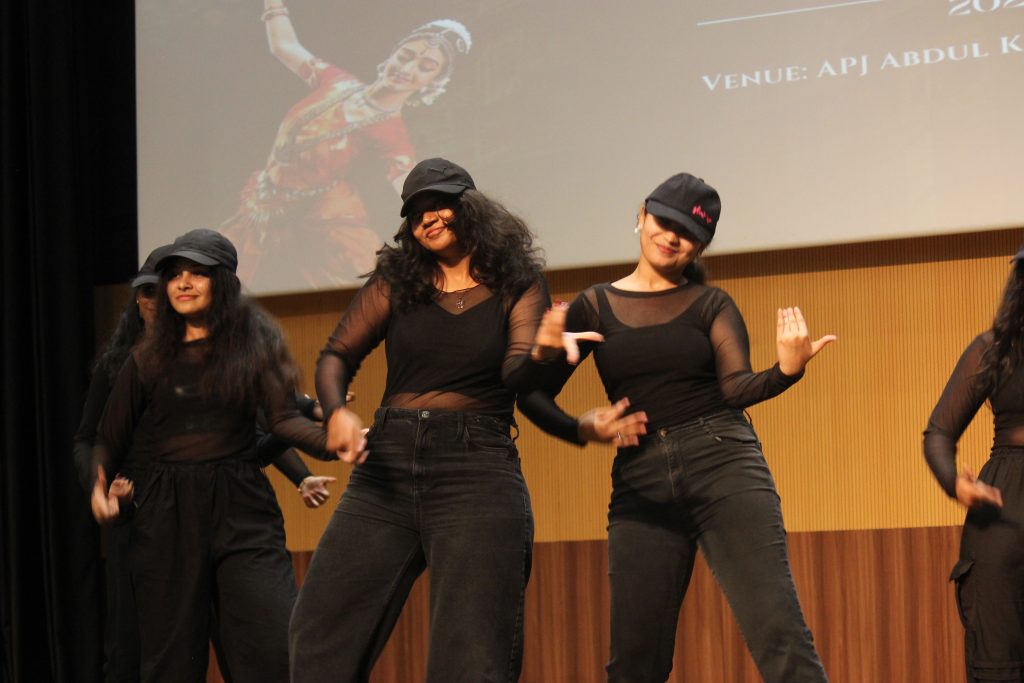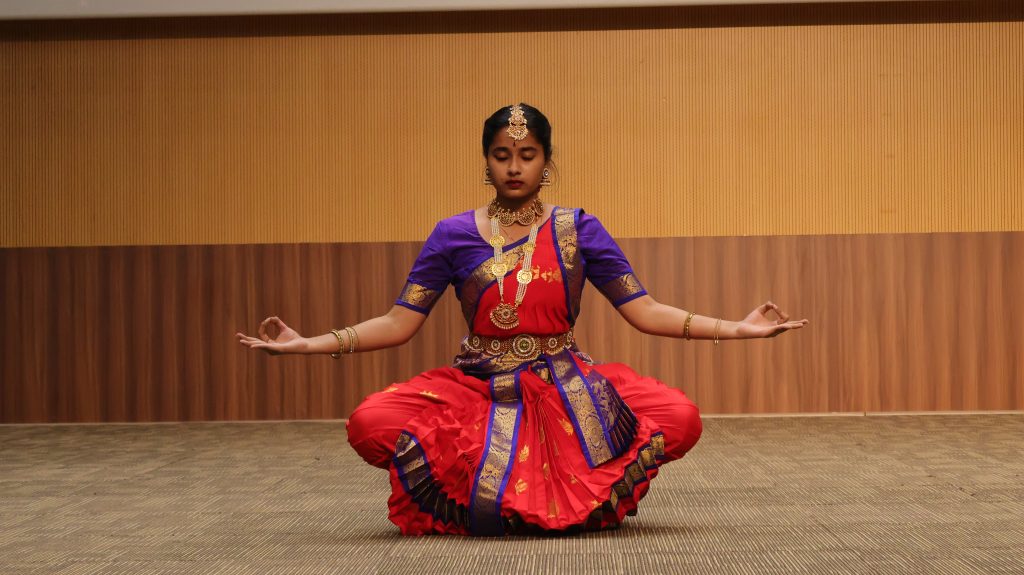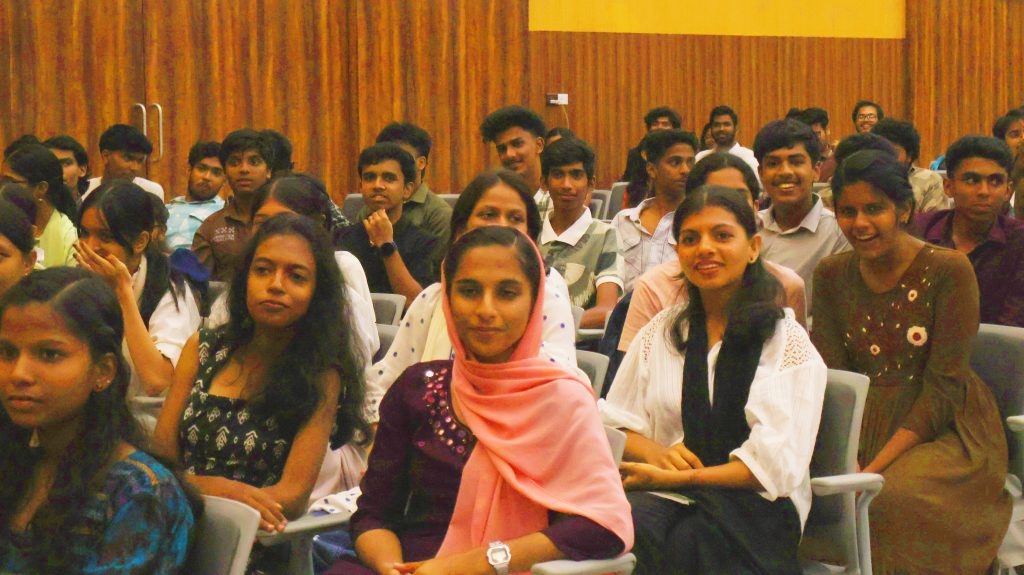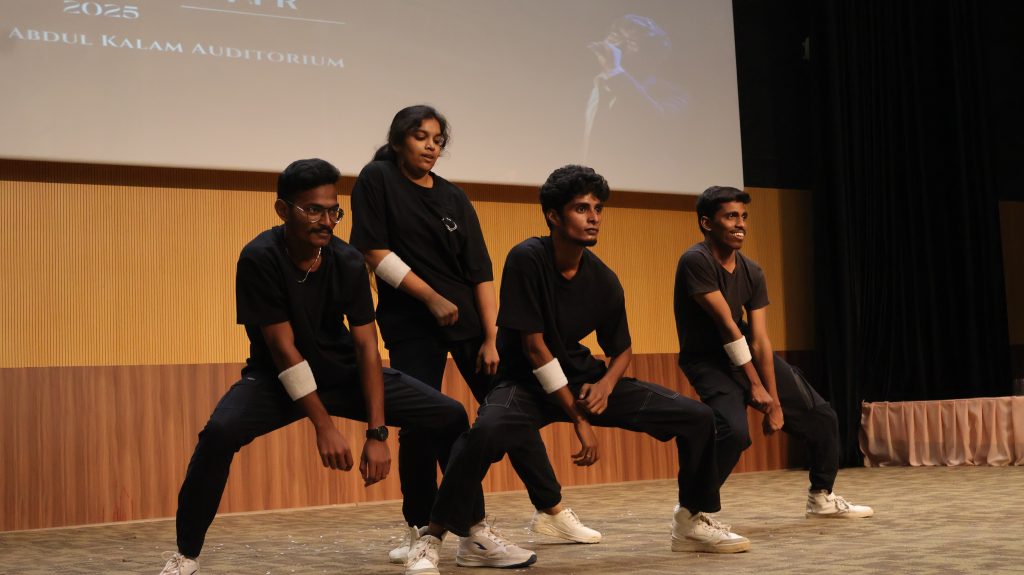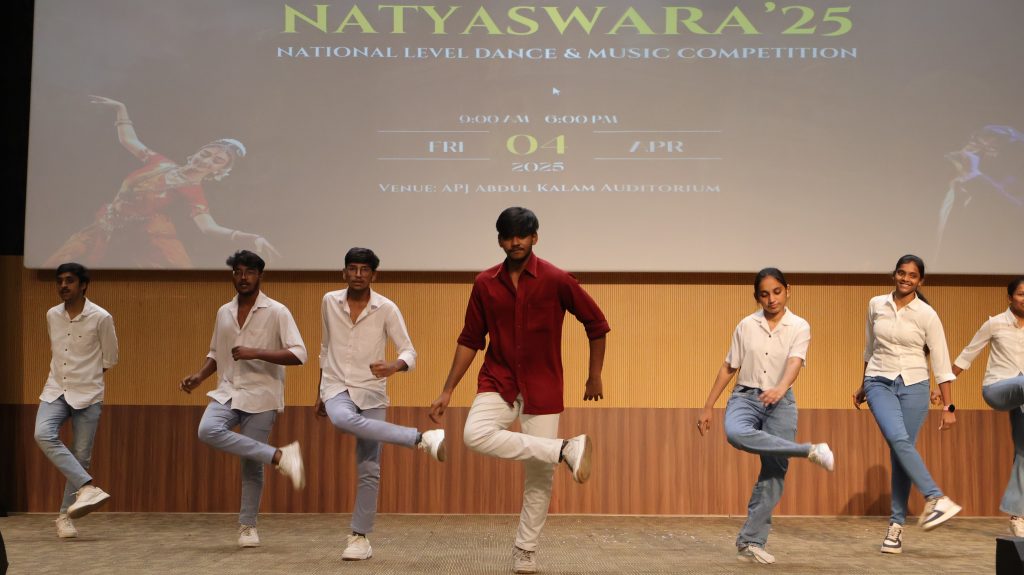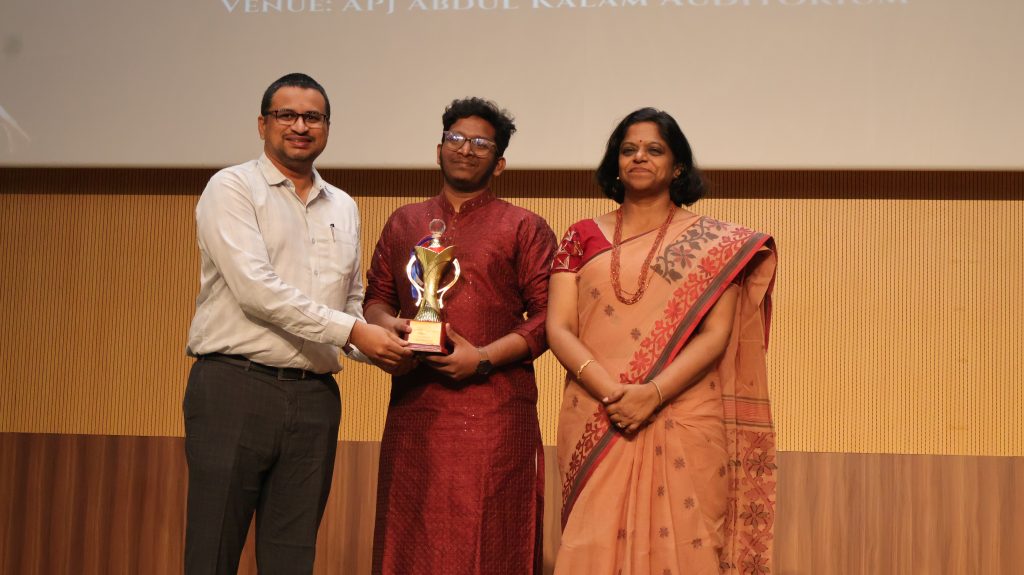All Management Events
- Dr Nirmal Singh April 9, 2025
- Dr Prajukta Tripathy April 9, 2025
- An Introspection into the Science of Art and Archaeology April 9, 2025
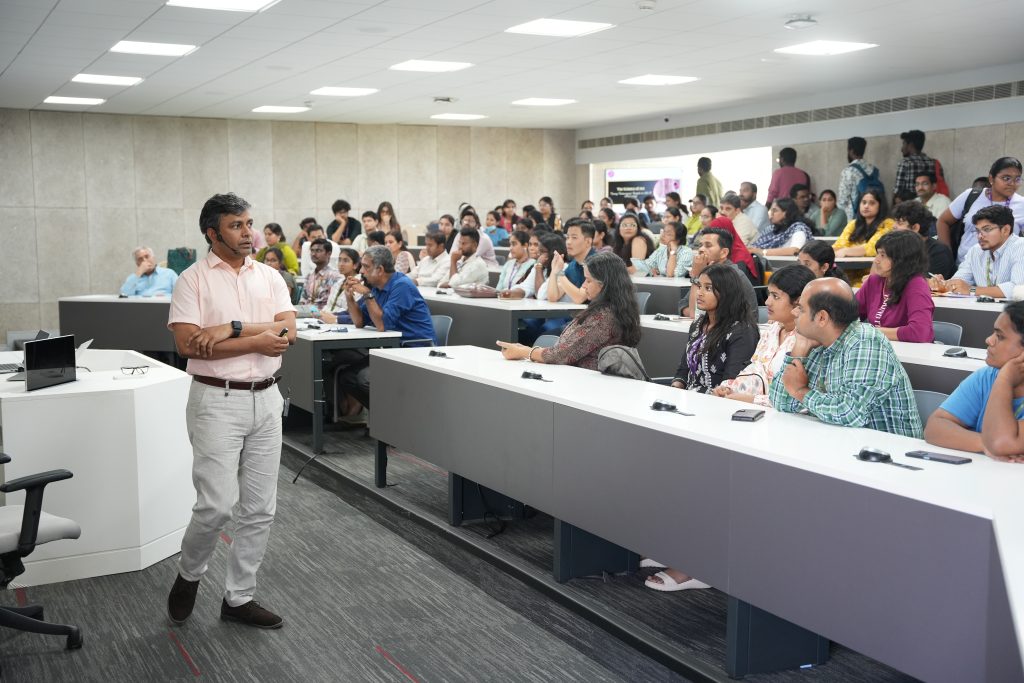
The Department of History, Easwari School of Liberal Arts, hosted Prof. Satish C. Pandey, Dean of Academic Affairs, Professor & Head—Department of Art Conservation, Indian Institute of Heritage, Ministry of Culture, Government of India, and Vice Chair—Directory Board, International Council of Museums—Conservation Committee (ICOM-CC), ICOM, Paris, France, for an insightful lecture on tracing technologies in art and archaeology on April 03, 2025.
In his session, Prof. Pandey shared his expertise in art conservation and archaeological science, offering valuable insights into the study of provenance and technology. He discussed the Site of Kunal from the Harappan Period and the intricate analysis of ancient pottery. His research highlighted the natural techniques used in pottery-making, where shape, colour, and firing methods were influenced by organic materials. Elements such as manganese (black), iron (red), and lime (pure white) were used to create distinct hues, while the lightweight nature of the pots was a result of their composition.
In addition to pottery, Prof. Pandey delved into the conservation of historical paintings. His research has uncovered instances of forgery and modification in artworks intended for public display. By utilising infrared analysis, he demonstrated how changes in oil paints, cracking patterns, and colour modifications over time help researchers restore and authenticate original paintings.
His visit provided an enriching experience, deepening our understanding of conservation science and its role in preserving cultural heritage.
Continue reading → - Will AI Replace Human Data Analysts? Here’s the Truth Behind the Hype April 9, 2025
- From friction to flight: Unblocking India’s startup and innovation ecosystem April 9, 2025
- The aftermath of Trump’s tariff: Boon for the US or blow to global stability? April 9, 2025
- Natyaswara 2025: A Magnificent Display of Cultural Performance April 9, 2025
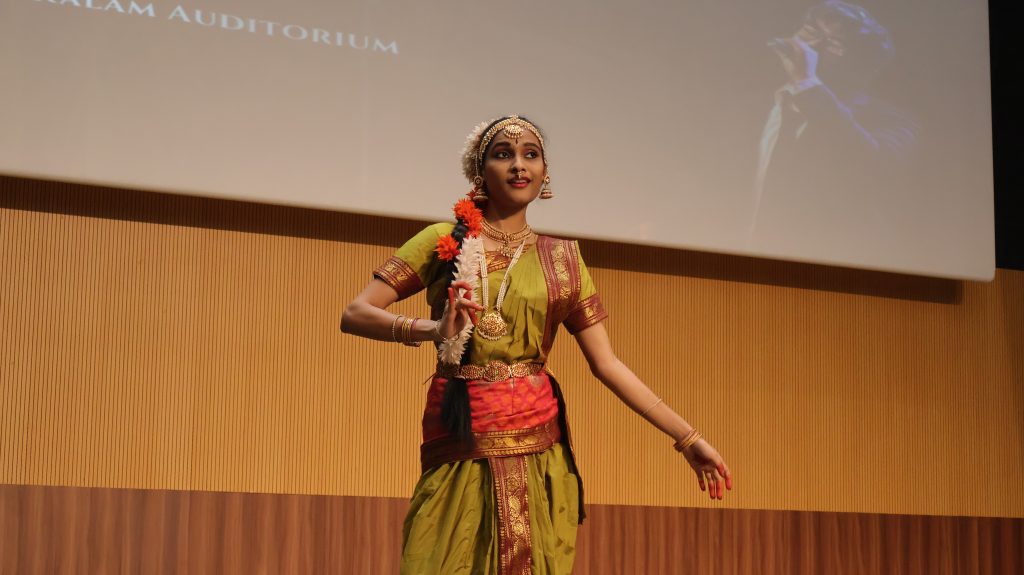
SRM University-AP witnessed a spectacular display of dance, talent, and creativity at Natyaswara on April 04, 2025. The event celebrated classical and contemporary dance forms and featured three dynamic categories: Classical solo, Contemporary Solo, and Contemporary Group Dance. Students from various universities participated, showcasing their unique style and skill and bringing energy and enthusiasm to the stage.
The competition was an incredible blend of tradition and modernity. The Classical Solo category saw dancers performing traditional Indian dance forms, while the Contemporary Solo and Contemporary Group Dance categories added a modern flair to the event with bold choreography and innovative storytelling. Impressing both the judges and the audience with their grace, precision, and poise, the category brought forward performances that were rich in culture and technique.
In the Classical Solo category, Krishna Poojita from SRM AP claimed first place, with Gayatri from VR Siddhartha University as the runner-up. In Contemporary Solo, Bhuvan from VIT-AP took the top spot, followed by Radhik from VR Siddhartha University in second place. In the Contemporary Group Dance category, Dance Community 1, led by Puneeth from SRM AP, won first place, while Dance Community 2, led by Vaishnavi, also from SRM AP, secured second place.
The event concluded on a high note with a spectacular display of creativity, versatility and immense talent.
Continue reading → - UDL #21 – Prof. Pramod K Varshney to Speak on Distributed Inference April 9, 2025
The Hans India
Continue reading →
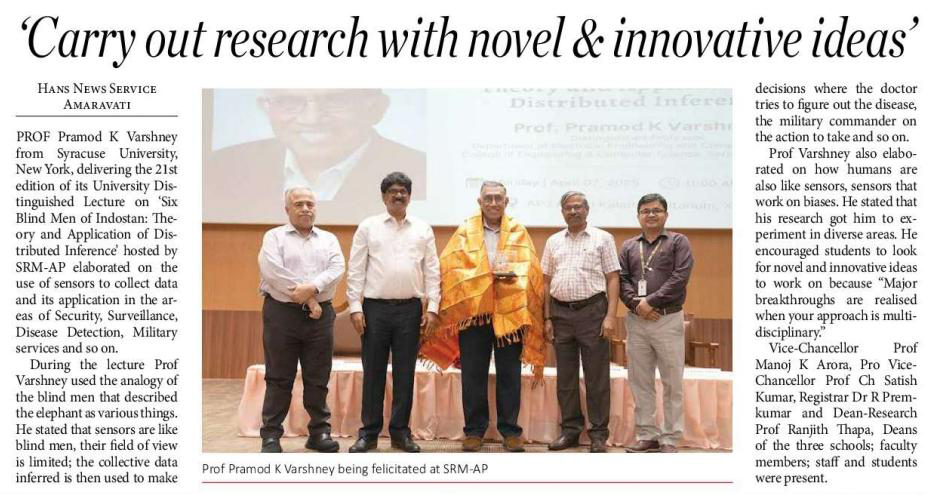
The Pioneer
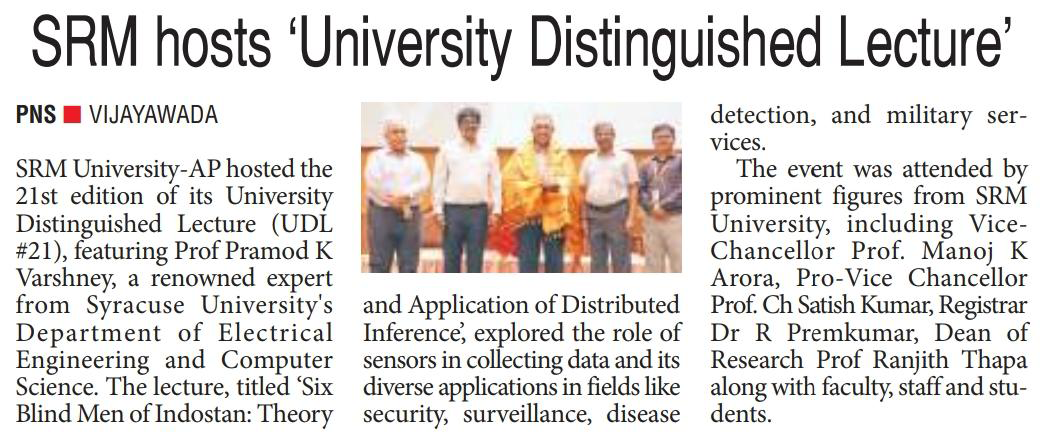
The South India Times
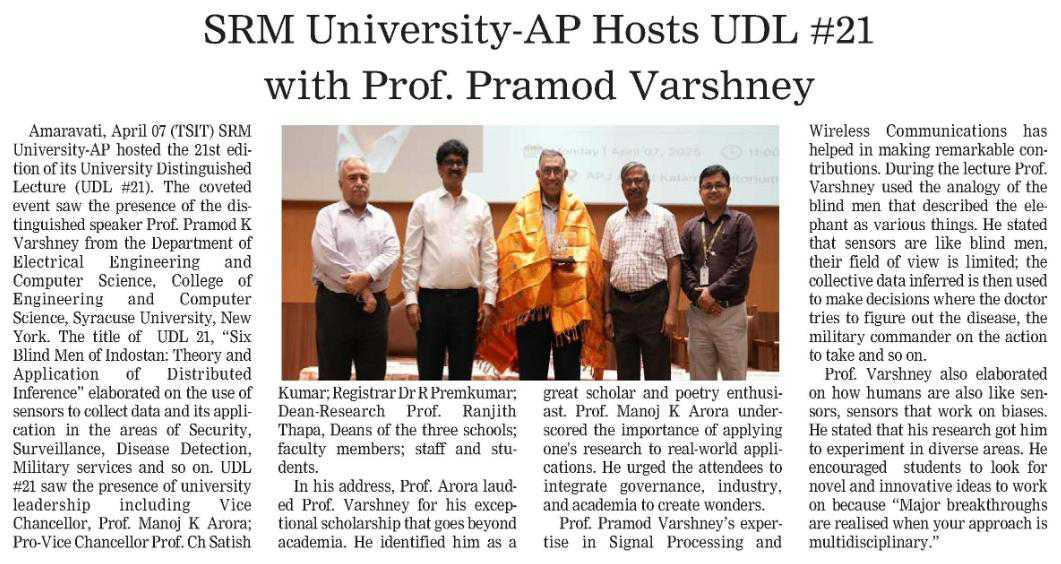
Arth Prakash
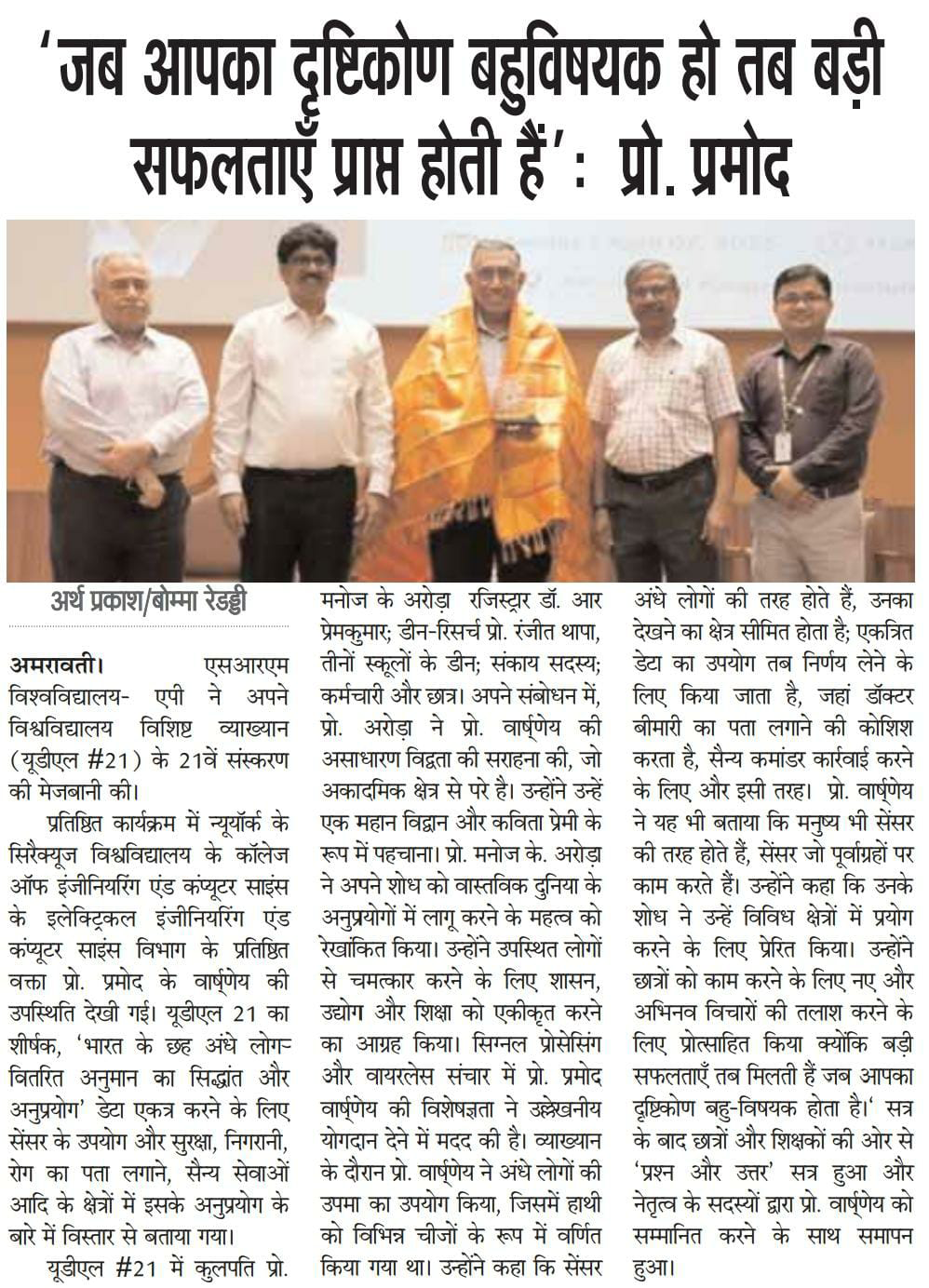
- Dr Anil K Suresh’s Work in Sustainable Nanoscience Lead his Scholar to Achieve Success April 9, 2025
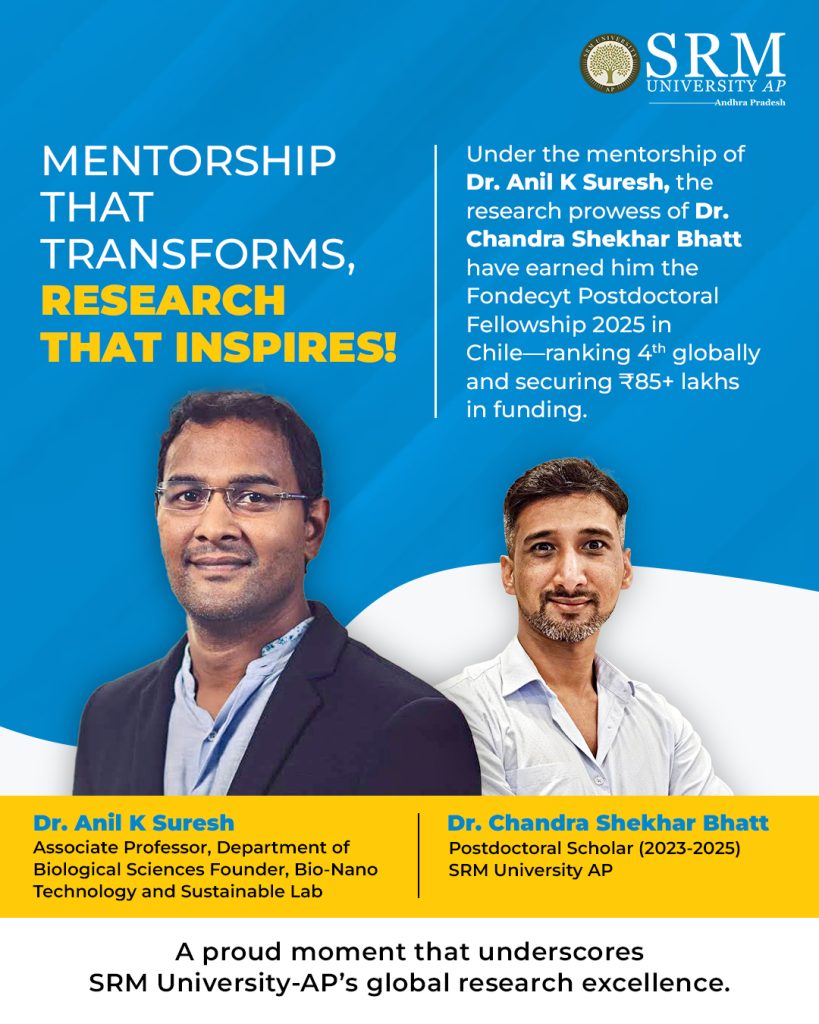
Dr Anil K Suresh, Associate Professor in the Department of Biological Sciences and Principal Investigator of the Bionanotechnology and Sustainable Lab, has achieved yet another feat with his ground-breaking work in sustainable nanoscience. His lab, committed to eco-conscious research, focuses on the sustainable synthesis of nanoparticles for applications in drug delivery, environmental remediation, and catalysis.
An outstanding accolade of his mentorship is the recent achievement of Dr Chandra Shekhar Bhatt, his former PhD student and Postdoctoral Scholar, who has secured the prestigious Fondecyt Postdoctoral Fellowship 2025 in Chile—ranking 4th globally and receiving over ₹85 lakhs in funding.
Under Dr Suresh’s guidance, their collaboration led to 12+ high-impact publications and global recognition, including features in C&EN, USA. Dr Suresh’s contributions span 64 Scopus-indexed papers, 27 book chapters, 4 books, 7 patents, and numerous fellowships and awards. Through his start-up, GreenGen Science Solutions, he champions scalable green innovations like the revolutionary “Jumbocatalyst” for hydrogenation reactions, “specfilm” for UV-spectroscopy, and “ultra-stable gold nanoparticles” transforming waste into eco-saving technologies.
Dr Anil K Suresh’s remarkable journey and the ripple effect of his visionary leadership inspire all researchers at the SRM AP community. Dr Chandra S Bhatt’s success in securing the prestigious fellowship is a testament to the high-quality research conducted at SRM AP.
Continue reading → - Dilip Kumar Vallabhadas April 8, 2025


